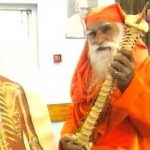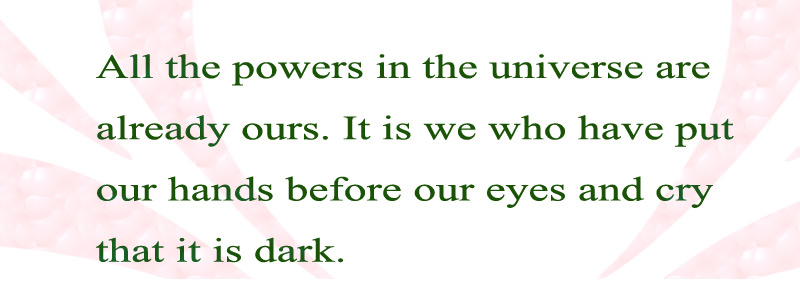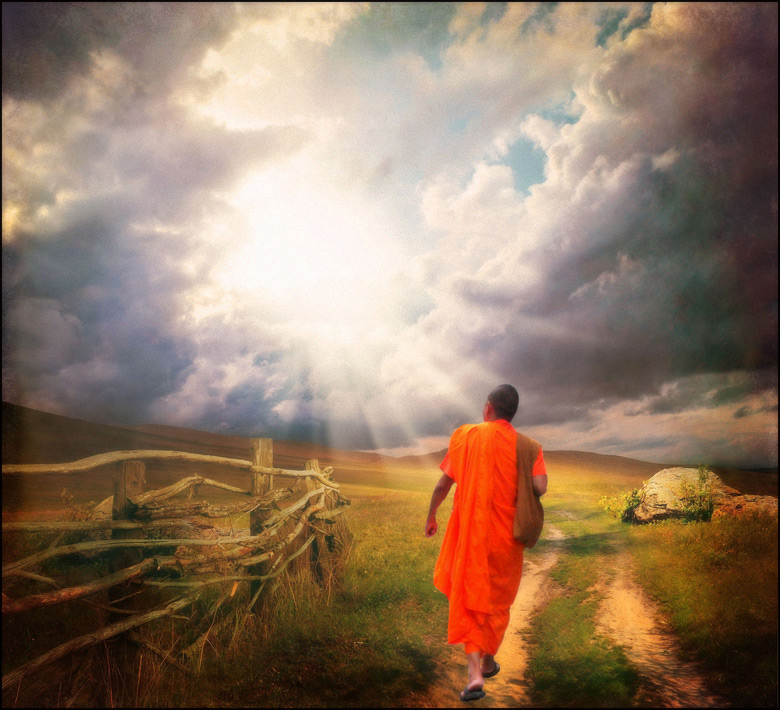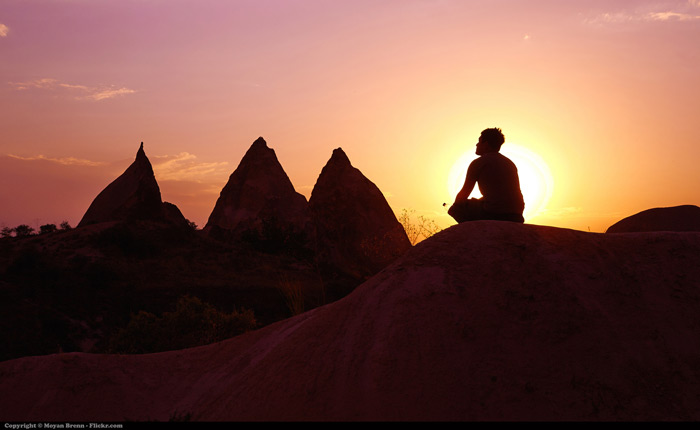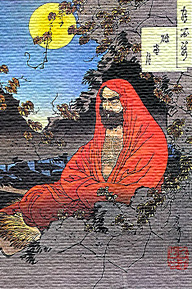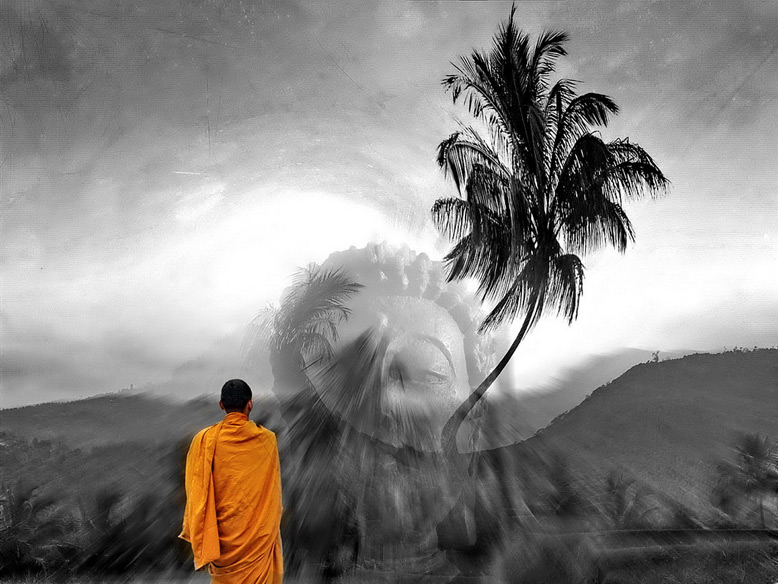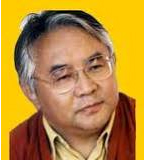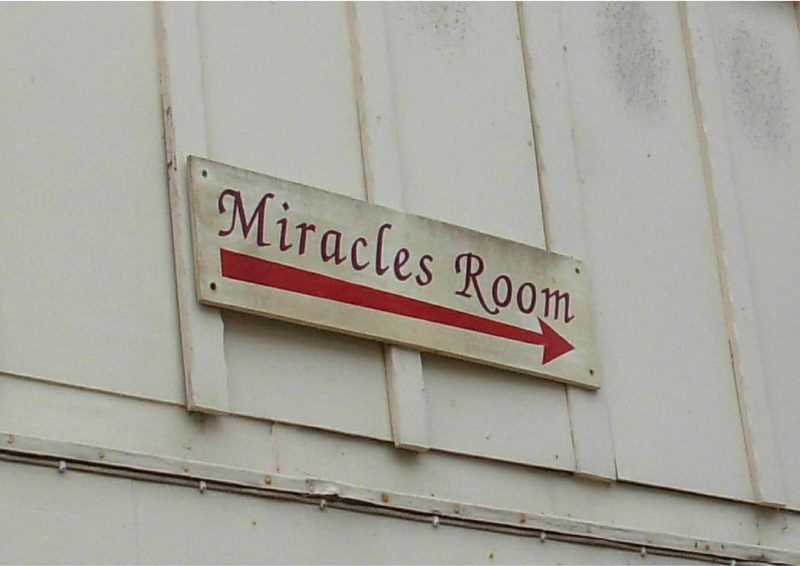
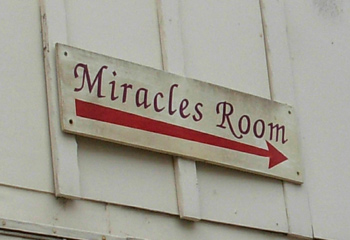 There is a nice story that illustrates the attitude of Gautama Buddha toward the tendency of some people to strive for miraculous powers in their spiritual practice.
There is a nice story that illustrates the attitude of Gautama Buddha toward the tendency of some people to strive for miraculous powers in their spiritual practice.
One day the Buddha came across an ascetic who was sitting by a river bank. This ascetic was known for his spiritual practice of austerity for good 25 years. The Buddha asked the ascetic, given all his hard work and labor, what he had received as a reward. The man replied with pride that, he was able to cross the river by walking on the water. The Buddha pointed in the direction of the ferry, indicating that the gain of the man was insignificant. He could, after all, cross the river for just one penny by using a ferry!
This story probably has different layers of meanings. One meaning could certainly be the message that we have to live our lives happily, performing our everyday duties, rather than chasing miracles and supernatural powers.
After all, why are we here on this planet, incarnated on this physical plane? We must have gotten these material bodies for a reason. We have them to follow our worldly duties, occupations, and obligations, and yet strive for Divine accomplishments and achieve something beautiful and worthy.
Of course, Buddha must have known very well that meditation, concentration, and training the mind within a well developed spiritual practice leads to attaining supernatural powers.
Buddha must have also known that these mystical powers develop by themselves even when the student is not seeking them, provided that he or she is well advanced on the spiritual path. But He never encouraged His students to chase nor publicly show such powers.
To Him, paying attention to miracles and powers was nothing else but a distraction for the disciples striving to realize the truth. The students themselves have to work for their liberation through purification of the lower self and not be tempted to fall into the trap of developing powers.
To Him, it didn’t really matter the kind of power: walking on water, thought reading, foretelling the future – they were all similar.
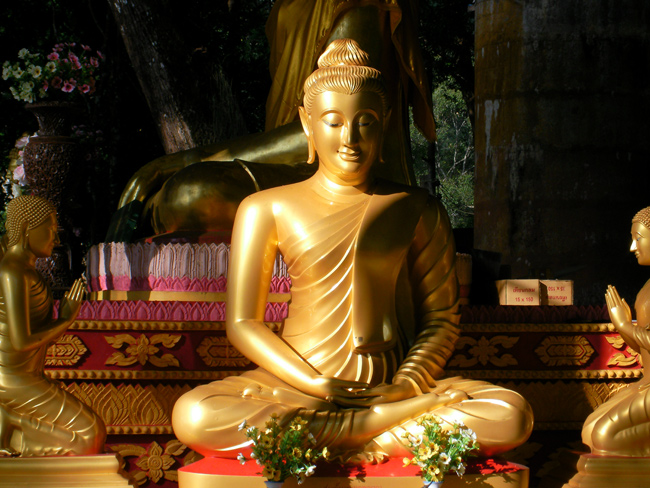
But what about hard core materialists and non-believers ? Buddha believed that even for the people with little faith, seeing miracles being performed was also not very useful. To Him the faith should be embraced because of the realization of the truth, not because of fascination or fear.
Therefore, Buddha was trying to draw people to listen to the Dharma (the teaching and religion of the Buddha) appealing to their reasoning powers.
Buddha was telling his disciples that gaining incredible powers was possible even without developing spiritually. He knew that one automatically receives powers if spiritually developed, which is a much better option. Having powers without being spiritually advanced is dangerous, as it usually leads to strengthening the ego, achieving vain glory or fruitless material gains.
Buddha explicitly forbade His students to demonstrate the authority of His teaching by using powers. To Him, miracles were simply a manifestation of the superiority of the mind over matter. Anyone with proper mental training could carry them out.
For Buddha, the highest power one could develop was the understanding the truth and realization of one’s true nature.
Here are some interesting resources about developing supernatural and mystical powers within the Buddhist thought and religion.
Relevant Links with Respect to Buddhism and Supernatural Powers
Did Buddha Perform Miracles?
Gautama Buddha was believed to possess powers. However, he disliked, rejected and despised them. He attained his abilities during His many years of deep meditation. He was well aware that attaining miraculous powers should never be the motivation for being on the path of self realization.
Check our more here.
Six supernatural powers of the Buddha
There are six supernatural powers of the Buddha. The explanation and instructions how to acquire them are given by Buddha Himself.
They are as follows:
- Iddhividha – the power of transformation
- Dibbasota – celestial hearing
- Cetopariya – the power of discernment of the mind of others
- Pubbenivasa – power of knowing previous existences
- Dibba-cakkhu – celestial vision
- Asavakkhaya – Supra-mundane knowledge or power relating to destruction of asavas (mental defilements of sensual pleasures, craving for existence, and ignorance) and the recognition of the four noble truths.
You can check out the more detailed explanation of all of them here:
Mogallana’s Supernatural Powers
Mogallana was Buddha’s disciple. He had the divine power to hear sounds, no matter how near or far. The other divine power of his was to see things through obstructions. He was also able to travel to any place in an instant.
You can check the detailed explanation of Mogallana powers here:
Does Buddhism Believe in Supernatural?
Check out the most complete answer here, even though perhaps it will not be the most satisfactory one.
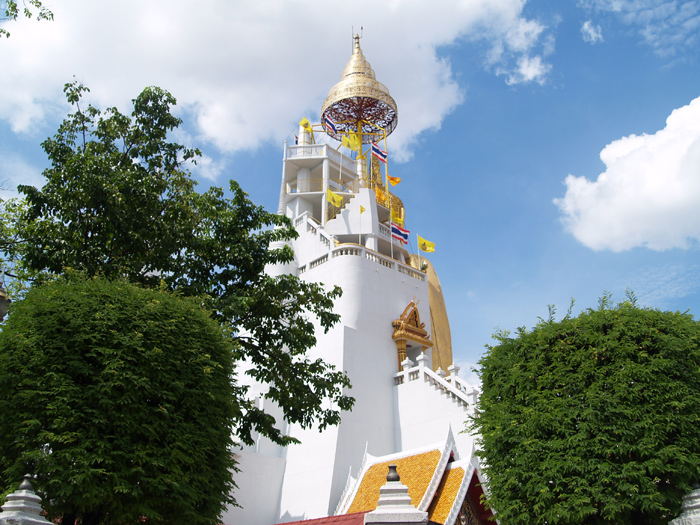
Psychic Abilities in Buddhism
Buddhists know deeper levels of concentration and jhana (Jhana is a state of meditation characterized by profound stillness and concentration) can lead to a wide spectrum of psychic powers.
These psychic abilities include knowing the past or future, reading minds at distance, seeing or hearing at distance, manipulating the basic elemental forces of air, earth, water and fire, and so on.
Buddhists texts that describe these powers are for example “The Path of Purification” or “Visuddhimagga” by Bhadantácariya Buddhaghosa.
The other teaching is, for example, the “Yogas of Naropa“.
It is a tantric tradition within the Tibetan Buddhism. Arranged by the Indian masters Tilopa and Naropa, this yogic system was carried to Tibet one generation later. The six yoga methods described in this teaching are the yoga of inner heat, clear light, forceful projection, illusory body, consciousness transference, and bardo yoga.
Psychic and Supernatural Powers in Contemporary Buddhist Practices
We know of some contemporary Buddhist practices where psychic powers are developed and even documented.
For example, the practice of tummo has been shown to increase core body temperature at will. G-tummo meditators are able to dry wet sheets surrounding their naked bodies during a frosty Himalayan ceremonies. The result have been published in the following paper:
Another phenomenon is related to the so-called rainbow body. Dzogchen practitioners are believed to be able to dissolve their bodies at the moment of their death. During the process, their body emanates rainbow light, and finally only the hair and nails are left behind.
Have you ever experienced any psychic phenomena in your meditation practice? What is your attitude toward attaining supernatural powers?
